Course Objectives
- To demonstrate the relationships between theory and practice so that course participants may understand the underlying rationale of mainstream and alternative foreign language pedagogy.
- To introduce course participants to theories of language and theories of language learning which have influenced the development of current thought regarding foreign language teaching and learning practices and approaches to curriculum/syllabus design, to materials development and to the development of tools for the assessment of linguistic and communicative competence.
- To familiarize them with curriculum/syllabus documents for the teaching of English in Greek schools, with the national curricula for languages in other member states and with European language curricula guidelines.
- To enable them to evaluate teaching/learning approaches and methodology in relation to the pedagogic, the political and the social goals that these fulfill.
- To enable them to assess pedagogic aims and suggested classroom practices in connection with educational and language policy aims.
- To build a framework for conceptualising approaches to language teaching and learning that serve the needs of their prospective students operating in particular sociocultural contexts.
- To introduce them to recent methodological approaches to the teaching of English as a foreign language including experiential learning, differentiated instruction etc.
Instructors
Bessie Dendrinos completed her undergraduate studies at the National and Kapodistrian University of Athens in Greece, her postgraduate studies in the USA, at Claremont Graduate School and University Centre and at UCLA, and her postdoctoral studies in the U.K. (at the University of Cambridge). Mainly concerned with the discursive practices of TEFL and European educational language planning, she has carried out research in Greece and other European member states, particularly in England, Portugal and Spain. Her areas of expertise are language politics in the European Union and foreign language pedagogy, curriculum and materials development, as well as language testing and assessment. She has worked in the field of applied linguistics for language teaching and learning and, since the early 90s, she has been working in educational linguistics, but also in critical discourse analysis of language policy documents and foreign language teaching materials. Her keen interest in socially accountable applied linguistics has also led her to investigate linguistically construed gender ideology, the linguistic representation of poverty and the bureaucratic discourse in Greek public documents. Since 2002, she has devoted much of her time to developing a foreign language examination suite for six languages on the 6-level scale of the Council of Europe. The exams prepared by expert teams from the University of Athens and the University of Thessaloniki are conducted by the Ministry of Education, which issues the certificates of language proficiency. In 2004 she founded the Research Centre for Language Teaching, Testing and Assessment, which she has been directing ever since, and which is presently fully equipped and staffed. Since 2010, she has been very involved with two multidimensional projects, funded by the European Union and the Greek state, which are concerned with language teaching and assessment. She is also involved with the work of the DG EAC of the European Commission to promote multilingualism in Europe.
Textbook
The Applied Linguistics Reader and Workbook. (2008). Athens: University of Athens.
Bibliography
- Brown D. (1994). Principles of Language Learning and Teaching. New York: Prentice Hall.
- Cook G. and Seidlhofer B. (1995) Principles and Practice in Applied Linguistics. Oxford: Oxford University press.
- Council of Europe (2001). Common European Framework for Languages: Teaching, Learning and Assessment.
- Dendrinos, B. (1992). The EFL Textbook and Ideology. Athens: N.C. Grivas Publications.
- Dendrinos, B. (2001). The Politics of ELT. The University of Athens Publications.
- Johnson, K. (2001) An Introduction to Foreign Language Learning and Teaching. London and New York: Longman-Pearson Education. (Chapters 2-12)
- Kohonen, Viljo et al. (2001). Experiential learning in Foreign Language Education. London and New York: Longman-Pearson Education.
- Lantolf, J.P. (ed). (2000). Sociocultural Theory and Second Language Learning. Oxford: Oxford University Press.
- Macedo, D., Dendrinos, B. & Gounari, P. (2003). The Hegemony of English. Boulder, Colorado: Paradigm Publishers.
- Morrow, K. (ed). (2004). Insights from the Common European Framework. Oxford: Oxford University Press.
- Papakonstantinou, A. (1991) Suggestopedia. An art of teaching, an art of living. Athens: Hellenika Grammata.
- Papakonstantinou, Α. (1997) Creating the Whole Person in New Age. Athens: A. Kardamitsa.
- Papaefthymiou-Lytra S. (1987a) Communicating and Learning Strategies in English as a Foreign Language with Particular Reference to the Greek Learner of English. Athens: University of Athens press
- Papaefthymiou-Lytra S. (1987b) Language, Language Awareness and Foreign Language Learning. Athens: Athens University Press.
- Papaefthymiou-Lytra S. (1990) Explorations in Foreign Language Classroom Discourse. Athens: Athens University Press.
- Richards, J.C. & Rodgers, T.S. (2001). Approaches and Methods in Language Teaching. Cambridge: Cambridge University Press.
- Τοκατλίδου, Β. (2003). Γλώσσα, Επικοινωνία και Γλωσσική Εκπαίδευση. Αθήνα: Εκδόσεις Πατάκη.
- Willis, J. (1996). A Framework for Task-Based Learning, London and New York: Longman.
Contents
- What is applied linguistics
- Approaches and methods for foreign language teaching and learning
- Theories of language and their influence on foreign language pedagogy
- What does knowledge of a foreign language involve? Communicative competence
- Foreign language curriculum developmet and syllabus design.Tha of the Integrated Foreign Languages Curriculum
- Theories of language learning and their influence on foreign language pedagogy
- Focus on learning and the language learner: Individual differences in foreign language learning
- Recent developments in foreign language teaching and learning
Prerequisites/Prior Knowledge
There are no prerequisites for taking this courses.
